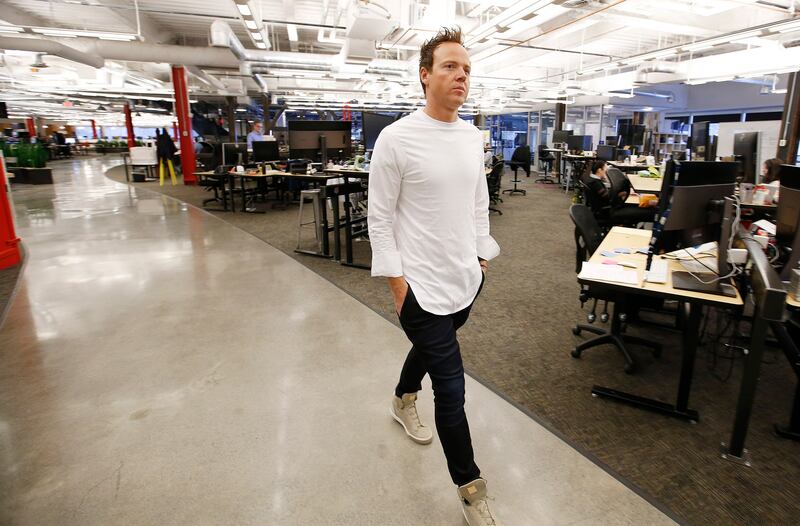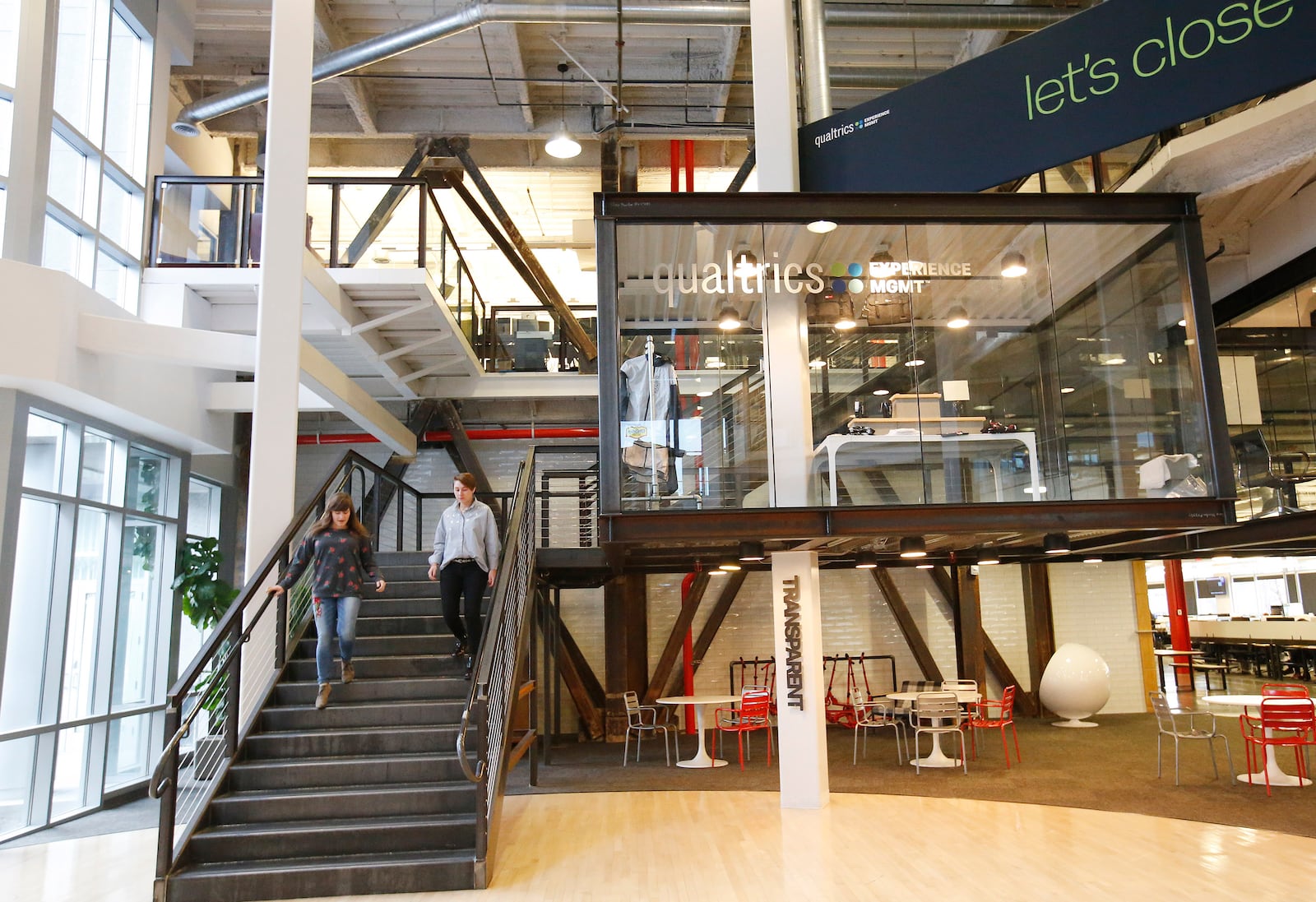This story appears in the April issue of Utah Business. Subscribe here.
Utah has a long history of tech visionaries with big ideas looking to change the world. Among them is Scott Smith, a Brigham Young University (BYU) marketing professor driven to simplify marketing and the voice of customer research.
In 2002, Smith co-founded Qualtrics with his two sons, Ryan and Jared, and Stuart Orgill in their basement. From that point, the rest is history. Under Ryan Smith’s strategic leadership, Qualtrics blossomed from a bootstrapped venture into a formidable tech giant, culminating in an $8 billion acquisition by SAP in 2018 and a subsequent $12.5 billion privatization by Silver Lake in 2023.
Amidst this meteoric rise, Ryan Smith also acquired the Utah Jazz, adding a storied sports franchise to his portfolio of achievements. Ryan’s focus is now shifting toward nurturing the next wave of innovators and founders as he recently announced plans to establish a premier tech incubator in Provo.
In a statement provided by Provo City, Ryan said, “We will create Utah’s first real incubator for tech and business. We’ll invite people from around the world to Provo, where they can live and actually birth their companies in what we think is one of the coolest business and opportunity environments that exists. We have a chance to do something iconic in Provo.”
In today’s climate, where venture-backed startups seem to be failing at record rates, having the additional resources of a world-class incubator can play a key role in their success.
“Incubators are really amazing for startups because they help those in the beginning phases who often don’t have the resources,” says Alecia Hart, director of the Startup State Initiative at the Governor’s Office of Economic Opportunity. “When you’re starting out, you’re on a journey to find funding and mentorship and build those really valuable networks. Incubators assist these businesses in the beginning phases by providing access to those necessary resources. They help get that initial jump-start and help them succeed. Incubators are so vital. We’re really excited for this incubator to be built in Provo.”
Over the years, many Utah companies have benefitted from being accepted into incubator programs nationwide. Aaron Bylund, founder and CEO of Soon, says that he and his team had a “transformative experience” at Y Combinator in 2022.

“All I can say is that we were not the same company after as we were before. We underwent significant changes,” Bylund says. “Our leadership structure, product and overall business philosophy were completely transformed. Additionally, the way we worked together and communicated as a team underwent a complete metamorphosis for the better.”
Bylund emphasizes the significance of the mentorship his team received in the context of their growth as a critical differentiator of incubators.
“You just don’t know what you don’t know. Having a great idea is one thing, but unless you have guidance from those who have preceded you, there are likely many aspects of execution you may be unaware of,” he continues.
Bylund also points out the value of learning from others’ experiences to “avoid repeating their mistakes.”
According to Keith Morey, development director for Provo City, Ryan Smith has rezoned and is developing two pieces of property on University Avenue near the mouth of Provo Canyon.
“There will be a residential community on the west side of the river that has already broken ground and a 300,000 square foot development on the east side of the river that is awaiting a finalized site plan,” Morey says.
“This is valuable … to Provo because it’s a further commitment to the legacy of the startups within our community,” Morey says. “To see businesses and people, individuals like Ryan, continuing to recognize the value of that fertile soil in Provo and to grow crops in that field is reassuring.”
With Ryan Smith’s investment signaling a renewed focus on fostering entrepreneurship, the collective enthusiasm expressed by Provo’s community leaders and technology community stakeholders underscores the collaborative spirit driving Utah’s continued resolve.
“I remember when this incubator was first announced, and I was excited that someone like Ryan Smith was going to build something like this,” Bylund says. “I hope that they build a serious curriculum and invest in the companies in a way that allows us to support startups so that Silicon Slopes can remain competitive with tech centers around the country.”

